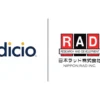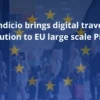When it comes to decentralized identity, Indicio is technology agnostic. This enables us to offer customers the best possible solutions to meet their exact needs.
By Ken Ebert
In a rapidly expanding field, there are many approaches to solving a multitude of use cases and requirements. This is why Indicio’s approach is to solve the customer’s problem rather than sell them a specific protocol or single technology. Within the overall framework of decentralized identity and using verifiable data to create trusted digital relationships, we are and have always been technology agnostic.
At present, this agnosticism applies most of all to credential formats. There is no single format — at least not yet — that meets every customer’s needs or legal requirements. So we help our customers assess what is important to their use case, for example:
Does regulation require them to use a particular credential type?
Do they need to be able to use selective disclosure?
Do they need to be able to use predicate proofs?
Do they need privacy-preserving holder binding?
Where preserving privacy is critical, we recommend AnonCreds, as it is the most feature rich. If regulation or interoperability require a different credential format, we’ll support that as well.
The same situation also exists for the protocols in an ecosystem. Our clients often have requirements that are well met by the rich interaction models and power of DIDComm-based credential exchange and communication protocols.
Increasingly, our clients require interoperability with the eIDAS 2.0 standards, including the OID4VCs protocols. We support these as well, and advise our customers on the best way to achieve their goals within the limits of those protocols. If a customer is already using DIDComm for its rich interaction model and protocols, they are usually able to keep those features while adding additional protocols for compliance reasons.
Our mission is to always meet the needs of our customers and generate solutions that deliver the most benefits. For us, this means delivering a complete solution that works right “out of the box” and that they fully own and can develop on as technology evolves.
Providing this future flexibility is why we use and support open-source projects whenever possible. In the adoption of additional credential types and protocols, we are working with open-source collaborators to realize these goals. These collaborative efforts lift and support the community as a whole for a stronger, more capable, and broader ecosystem.
When it comes to deployment, we can do as much or as little as a customer’s development team needs. This is why our product range is available both as complete ecosystem solutions and as individual building blocks—and why we are continually adding blocks, new features, and full ecosystems to our product range.
Our most recent addition is an update to Aries Cloud Agent-Python (ACA-Py) so that it can handle thousands of interactions per minute, thereby enabling verifiable credential ecosystems to rapidly scale.
For those curious about the technologies we have on our roadmap, here are the technologies we are asked about most often:
Credential types: SD-JWT, JSON-LD, OpenBadges 3.0, mDL/mDOC
Protocols: DIDComm v2, OID4VCI/OID4VP, WACI
DID Methods: did:web, did:indy, did:ion
Governance: DIF CredentialTrustEstablishment, eIDAS PKI, TOIP Trust Registries
Signature Types: RSA, ECDSA, Secp256k1
There is no single technology choice that will rule the entire decentralized identity landscape in every environment and across time. The important thing is that we keep our eyes on the overall value proposition: solutions that create trusted digital relationships.
If you have questions or would like to learn more we encourage you to reach out to our team.






